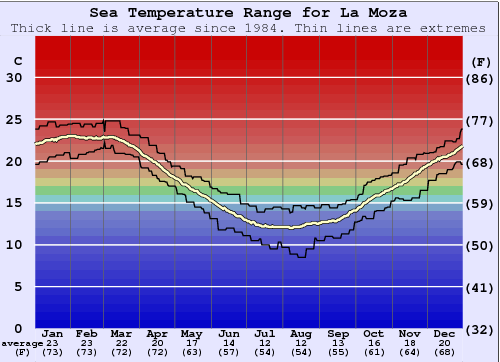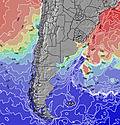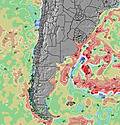La Moza Water Temperature and Wetsuit Guide
(Uruguay – North)
- Forecast
- Maps
- Live
- Weather State
- Spot Information
Today's La Moza sea temperature is 75 °F
(Which is 4.9°F warmer than normal for this time of year)
| Mean: | 70 °F | ||||||||||||||||||||||||||||||||||||||||||||||||||||||||||||||||||||||||||||||||||||||||||||||||||
|---|---|---|---|---|---|---|---|---|---|---|---|---|---|---|---|---|---|---|---|---|---|---|---|---|---|---|---|---|---|---|---|---|---|---|---|---|---|---|---|---|---|---|---|---|---|---|---|---|---|---|---|---|---|---|---|---|---|---|---|---|---|---|---|---|---|---|---|---|---|---|---|---|---|---|---|---|---|---|---|---|---|---|---|---|---|---|---|---|---|---|---|---|---|---|---|---|---|---|---|
| Range: | 67 °F to 73 °F | ||||||||||||||||||||||||||||||||||||||||||||||||||||||||||||||||||||||||||||||||||||||||||||||||||
| Statistics for 01 Apr (1981–2005) | |||||||||||||||||||||||||||||||||||||||||||||||||||||||||||||||||||||||||||||||||||||||||||||||||||
Today, many surfers would wear a shorty .
Sunny with pleasantly warm air temperatures (feeling like 68 °F once we account for wind), and similar sea temperatures (73 °F). Wear boardshorts or a shorty, or better still a thin summer wetsuit to keep the UV off.
(click thumbnails to expand)
Below is a graph of Historical Sea Surface Temperature for La Moza. This has been derived from analysis of two decades of oceanographic satellite measurements of nearby open water. We have calculated the average water temperature variation around the year as well as the extremes that have been observed on each date.

All of the graphs for the surf breaks presented on Surf-Forecast.com are on the same scale to enable comparison between locations around the world.
La Moza sea temperatures peak in the range 21 to 24°C (70 to 75°F) on around the 29th of January and are at their lowest on about the 6th of August, in the range 9 to 14°C (48 to 57°F). La Moza sea temperatures are always warm reach their highest in late January. You'll need a 2mm neoprene top or a shorty at dawn/dusk or if it's windy. At its lowest in the first week of August, low sea temperatures at La Moza are suited to a 5/4mm or 5/3mm good quality wetsuit with neoprene gloves and 3mm boots. You will need a hood if it's windy or the air is cold.
Actual sea surface water temperatures close to shore at La Moza can vary by several degrees compared with these open water averages. This is especially true after heavy rain, close to river mouths or after long periods of strong offshore winds. Offshore winds cause colder deep water to replace surface water that has been warmed by the sun. Air temperature, wind-chill and sunshine should also be considered before deciding on the kind of wetsuit needed to stay warm when surfing at La Moza. Refer to our detailed weather forecasts for this information.












 Nearest
Nearest